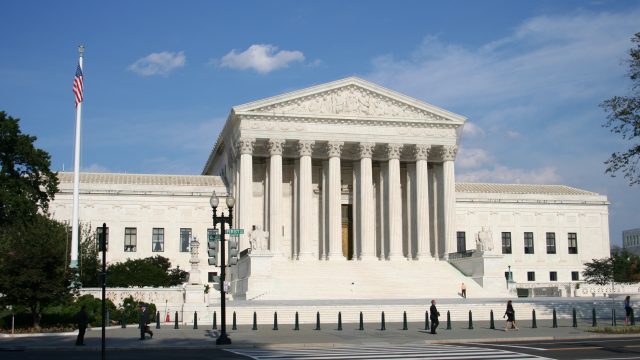John Andrist: What Would Our Founding Fathers Think?

What would our founding fathers think . . . or say?
We hear that uttered or printed time and again, but the truth is we really don’t know. All we really know is some of the details surrounding the document they created.
That document includes creation of the Supreme Court. They couldn’t have conceived in their time that the Supreme Court would become the most powerful body in our land, the final arbiter of all things.
When we vote for a president the most important consideration for us ought to be the kind of person who he/she will appoint to that court, and what kind of philosophy we can expect.
You vote for the candidate, you say? That’s not nearly as important as voting for one who will appoint judges with the wisdom of Solomon.
It is naive to believe you can separate the man and his character from his governing philosophy.
[mks_pullquote align=”right” width=”300″ size=”24″ bg_color=”#ffffff” txt_color=”#000000″]We can’t muddle our way through life in today’s world unless we can find a way to put love and respect for others in a pre-eminent position above all other virtue.[/mks_pullquote]
We all know there are three equal governing entities created by our constitution — executive, legislative and judicial. But when push comes to shove, the judicial has the trump card.
For one thing, the founders could not have known they themselves would embody so many conflicts within that constitution they drafted.
Take gun control. Americans today have taken gun ownership to an incredible extreme. Are we to be powerless to prevent our people from developing sophisticated killing machines?
Seems crazy, but the Bill of Rights suggests they can.
Roe v. Wade is not an act of Congress. It is a Supreme Court decision that has framed all abortion legislation for more than a generation.
As a libertarian, I probably would have advocated language that would have given the First Amendment precedence over all others.
It protects our right to freedom of speech, the printed word, religious liberty and the right to assemble with others of like mind.
The constitution leaves most policy decisions to the states, but it also contains the Bill of Rights.
That provides a huge conflict in governance today that the founders could scarcely have imagined.
I agree with the court’s decision on gay marriage. It’s implied in the Bill of Rights. Others who oppose it can also point to the constitution, which gives that determination to the states. So both sides have valid constitutional arguments.
Much was made this past week about the jailing of a Kentucky county recorder who was jailed because she refused to issue marriage licenses to gay couples. A matter of conscience, she said.
I couldn’t respect her conscience more. But so many people don’t fully understand she was jailed not for a matter of conscience, but for not complying with a Supreme Court decision, which becomes a law of the land.
Can you imagine a good man like Mike Huckabee, who has been a pastor and public rights defender all his life, standing up in defense of one who disobeys the law? And also Rand Paul, the most libertarian of all the presidential candidates?
Life is complicated. So is the law. It tries to blend individual rights with individual protections, which inherently are always in conflict.
That’s why we have liberals and conservatives, Republicans and Democrats, Christians and Muslims (and agnostics). We can’t muddle our way through life in today’s world unless we can find a way to put love and respect for others in a pre-eminent position above all other virtue.




